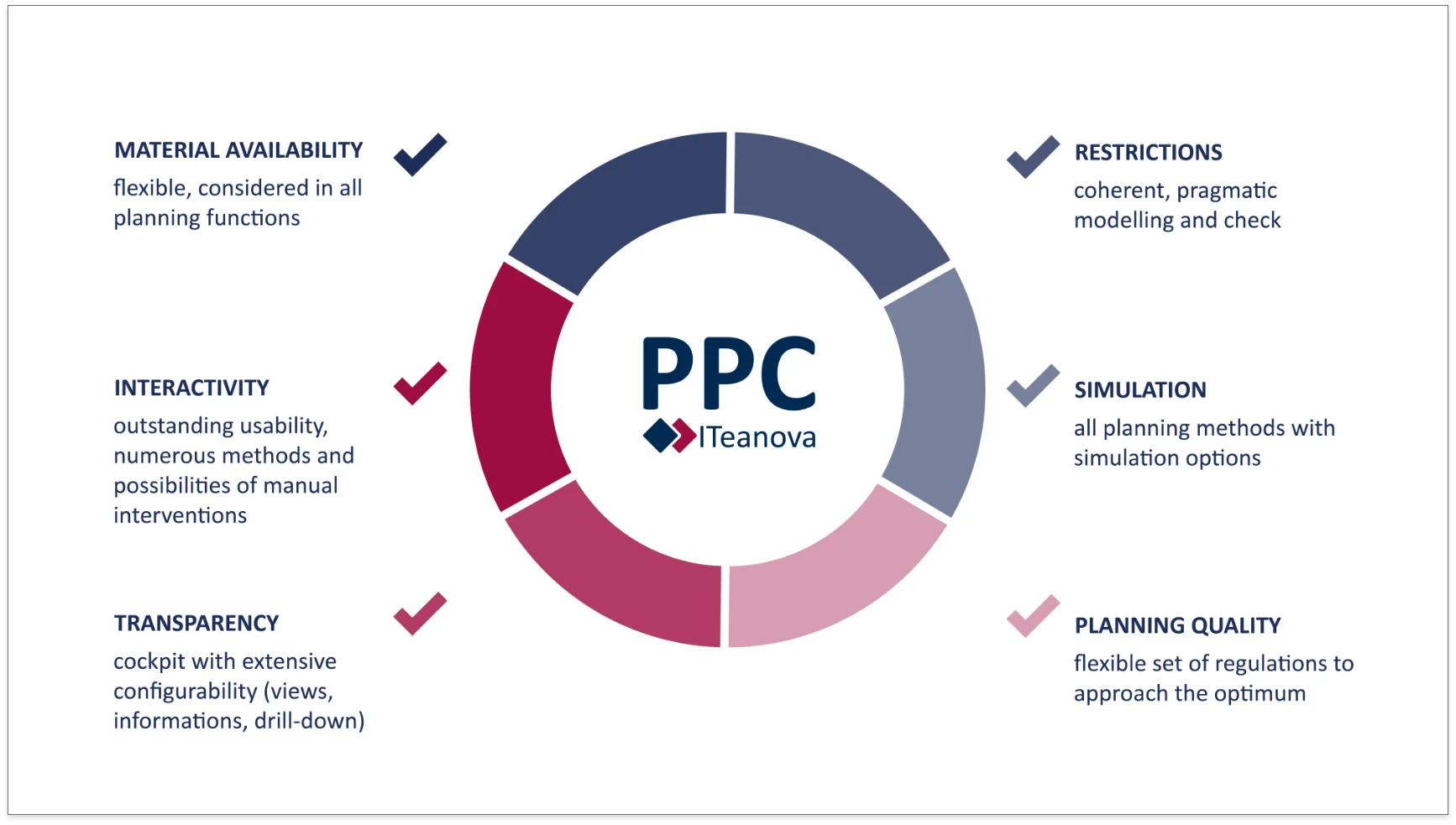Synchronisation
Everything that is changed in SAP ERP is immediately reflected as a
change in the production planning cockpit and vice versa: Everything
that is changed in PPC is reflected on the SAP ERP side.
Simulated changes
From the PPC, SAP functions can be called up in simulation mode (for
example, production order maintenance). Here from either side (PPC
or ERP) changes can be made in planning, which are reflected in the
PPC or ERP in simulation mode without the need to save in both.
Database changes
All simulated changes can be saved in the "PPC" planning cockpit.
All changes made directly in the PPC user interfaces or with PPC
algorithms, as well as all changes made by switching to SAP ERP
functions, are saved to the database.
Master Data
SAP ERP has a reserve of flexible master data for production
planning, which is also used in full by the PPC: both for creating
and maintaining important transaction data in the PPC (planned
orders/production orders), as well as their parameters for planning
purposes:
Material master
For example, lot size parameters and special procurement key (SOBSL)
for PPC demand coverage ("Lean MRP") and availability check group
for the pegging strategy.
Bill of materials
For example: special procurement keys and alternative groups.
Work center
Parameters for scheduling/ simulations in PPC.
Routing
Production sequence of operations when determining alternative
resources, buffer time and overlap settings for
scheduling/simulation in PPC.
Production version
The production version is automatically changed in
scheduling/simulation in PPC.
Production resources and tools
Assignment to operations and detailed data when converting
production resources/tools to bottlenecks/resources.
PPC Master Data
In addition to the SAP S/4HANA master data, you can create your own
master data in the PPC in order to achieve certain planning
functionalities that cannot be mapped with such flexibility using
just SAP S/4HANA master data. These data always have a direct
reference to existing SAP S/4HANA master data (for example, for the
material master, work center, routing).
These include:
- Referencing a work center (capacity type) to a PPC resource
- Grouping of resources into resource groups and hierarchies
-
Feasibility matrix: determination of alternative resources per
operation in the routing
-
Operation relationships between the operations of a routing with
the possibility of defining minimum and maximum offsets
-
Maintenance of product allocations according to available
capacities
